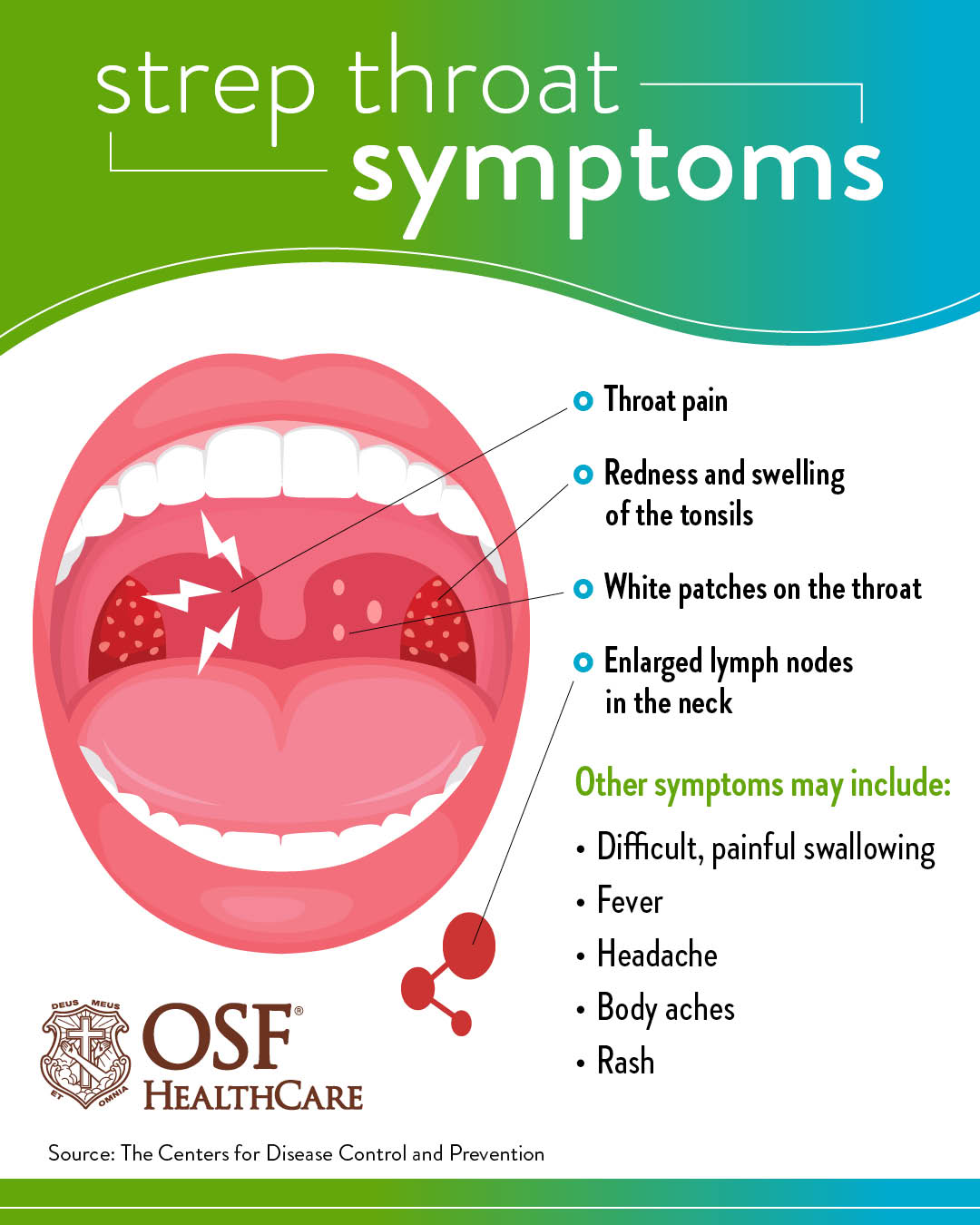Strep throat, a bacterial infection in the throat and tonsils, causes a sore or scratchy throat, as well as white patches on your tonsils.
It is highly contagious during the incubation period — the two to five days after you’re infected and before symptoms appear – and stays contagious until your symptoms resolve, according to Jake Mefford, PA, clinical director for OSF OnCall Urgent Care clinics.
“Hand hygiene and disinfecting commonly used surfaces frequently can decrease the risk of transmission of strep,” Jake said.
Jake took time to answer more questions about strep:
Q. What is strep throat?
A. Strep throat refers to the inflammation of the pharynx (pharyngitis), and/or tonsils (tonsillitis) caused by a group A streptococcus infection, This is just one of the many types of streptococcus bacteria.
Q. What does strep look like?
A. Common findings of the throat include redness, swelling and exudates (white patches).
Q. What are symptoms of strep?
A. In addition to a sore throat, someone with strep may experience a fever, headache, abdominal pain, nausea, vomiting, enlarged lymph nodes and rash.
Q. How is strep diagnosed?
A. The tonsils are examined and a sample of fluid may be taken from the back of the throat using a soft swab. The sample can be checked right away for the bacteria that cause strep throat. If the initial test is negative, the sample may be sent to a lab for further testing with a culture.
Q. How long does strep last?
A. Strep throat typically resolves in three to five days if untreated. Despite the short duration, antibiotic treatment is recommended to reduce the risk of complications. Symptoms typically resolve within one to three days following the start of antibiotics.
Q. How is strep spread?
A. Strep throat is transmitted via droplets. These can be tiny airborne droplets after a cough or sneeze or from surfaces that are contaminated with droplets.
Q. How is it different than a regular sore throat?
A. There are many different types of bacteria and viruses that can cause a sore throat. Many of the symptoms overlap between the causative agents and therefore it is very difficult to differentiate between strep pharyngitis and other causes of pharyngitis without testing. A cough is not a common symptom with strep throat and may indicate a different cause of sore throat.
Q. How should strep be treated?
A. Ibuprofen and acetaminophen can be used for discomfort and fever. Stay hydrated, rest and maintain a soft diet for comfort.
Q. Are antibiotics used to treat strep?
A. Antibiotics are used with the following goals in mind: reduce the severity and duration of symptoms, prevent acute and delayed complications and prevent the spread to others.
Q. What are complications related to strep?
A. Most cases of strep throat resolve without complications. However, complications can include blood stream bacterial infections, abscesses in the tissue surrounding the throat, ear infections and sinus infections. Other complications following the initial strep throat infection include acute rheumatic fever, kidney issues and psychiatric disorders.
Q. Is medical attention always needed for strep?
A. If strep pharyngitis is suspected, a strep test is recommended.
Q. Are there home remedies that can be used to treat strep?
A. In addition to a soft diet to avoid irritating the throat, individuals with strep may find the following soothing:
- Cold or warm beverages (honey should not be given to children less than 1 year old)
- Cold or frozen desserts such as popsicles, sucking on ice, sucking on hard candy (not recommended for children under 5 years old)
- Gargling warm salt water (1/2 teaspoon per 8 ounces of water)
Last Updated: April 13, 2022

